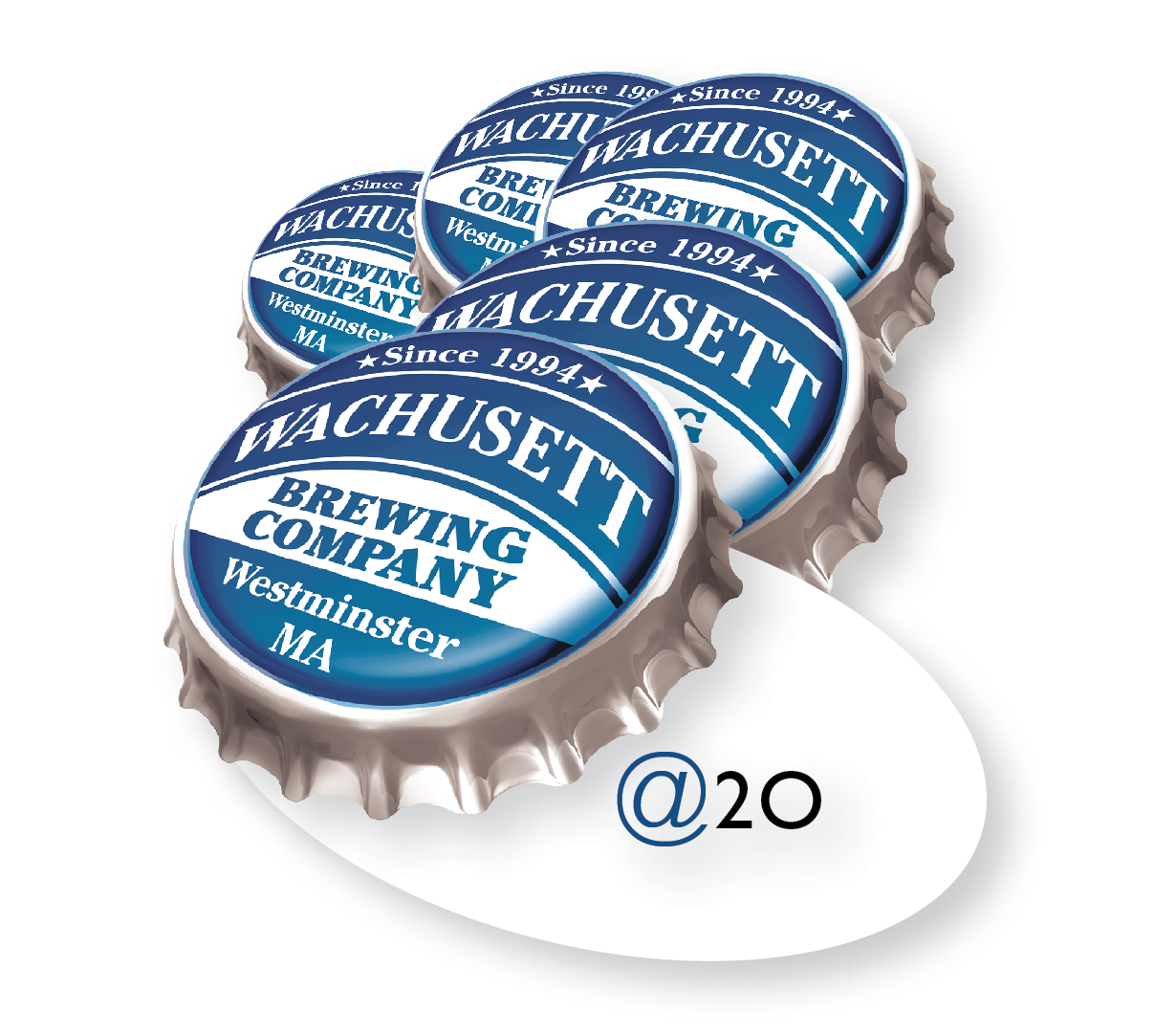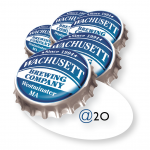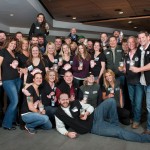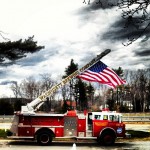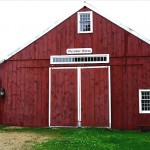WACHUSETT BREWING COMPANY@2O
Wachusett BrewING is celebrating its 2Oth anniversary in November. A lot has changed since founders Ned LaFortune, Peter Quinn and Kevin Butler left their fledgling careers in engineering and biology to embark on an ambitious dream: to open the first craft brewery in Central Massachusetts. “We really had no right to get into this business,” laughs LaFortune, Wachusett’s president. “We didn’t know about manufacturing, marketing, sales, distribution, accounts payable.” Today Wachusett is the second largest brewery in the state featuring a lively tasting room, a top-notch quality assurance lab, a state-of-the-art canning line and a staff that’s grown from 3 founders working 18-hour days to 35 full-time and 6 part-time employees. For a team that professes to have no business getting into the business, Wachusett Brewery has come a long way.
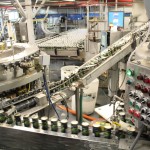 The brewery project essentially began as a hobby for the founders who met during their undergraduate years at Worcester Polytechnic Institute. LaFortune and fellow students Quinn and Butler “enjoyed drinking and learning about beer. After college we were mostly interested in finding better beer” than the cheap stuff they drank as undergrads. Their passion eventually led to homebrewing, where the budding entrepreneurs learned as much as they could about different styles through whatever books they could find on the topic. “I always knew I wanted to start my own business,” says LaFortune, “But I had no idea it would be brewing.” He graduated college in 199O and spent four years in engineering before leaving to start the brewery with his colleagues. La Fortune cites his civil engineering background as one of his greatest strengths coming into the business: “I did environmental work and often dealt with the government,” which proved to be very relevant for the licensing that he would later have to navigate to open the brewery. ”Engineers are good at problem solving.”
The brewery project essentially began as a hobby for the founders who met during their undergraduate years at Worcester Polytechnic Institute. LaFortune and fellow students Quinn and Butler “enjoyed drinking and learning about beer. After college we were mostly interested in finding better beer” than the cheap stuff they drank as undergrads. Their passion eventually led to homebrewing, where the budding entrepreneurs learned as much as they could about different styles through whatever books they could find on the topic. “I always knew I wanted to start my own business,” says LaFortune, “But I had no idea it would be brewing.” He graduated college in 199O and spent four years in engineering before leaving to start the brewery with his colleagues. La Fortune cites his civil engineering background as one of his greatest strengths coming into the business: “I did environmental work and often dealt with the government,” which proved to be very relevant for the licensing that he would later have to navigate to open the brewery. ”Engineers are good at problem solving.”
“We started home brewing, then built a pilot system, incorporated in 1993, and then began looking for a location,” says LaFortune. He grew up in Westminster, where the brewery sits in the shadow of Wachusett mountain, making its location a natural choice. “My father was upset at first because I was dropping my engineering degree but he eventually came on as our first employee.” Now a staunch supporter of his son’s dream, his father actually worked as a tour guide when the brewery opened.
Wachusett Brewery officially opened its doors in November 1994. “We self-distributed for the first five years,” says Ned, which provided the young start-up an opportunity to learn the ropes. “I had a cell phone and an invoice book that fit into my back pocket. We poured through the pages of beverage business to determine pricing – we learned so much from it.” Wachusett Brewery was a cash-only operation back then. “Sometimes we’d have to sit with the bookkeeper and just wait until there was time to cut us a check for an account’s order.”
From the beginning Wachusett Brewery received support from the local community. The popular New England ski area Wachusett Mountain was the brewery’s first big customer and remained their largest until the brand secured placement for “Green Monsta”, their fastest growing brew, at Fenway Park. Stores like Austin Liquors, Kappy’s, Yankee Spirits, and Wymans were also supportive from the start. “Pat Wyman has been a huge influence. He is a busy owner in charge of three stores but still used to take the time to sit and talk with me about marketing ideas,” LaFortune marvels. “He is a mentor and a great customer.”
“When the company started I’d get in at 5am. I was the first one here and the last one to leave – around midnight,” says LaFortune. Ned, Peter and Kevin did all the bottling for the first three years they were in business. “We did it in the evenings with volunteers – it took ten to run bottling line. We did it on Wednesday nights every week, from 6 until we finished.” Friends, family and local college students who would be compensated with freely flowing Wachusett brews made those early bottlings possible.
Partners Peter Quinn and Kevin Butler moved on from the brewery in 2O13 and 2O12 respectively, leaving LaFortune at the helm. He describes his strategy for growing the company as “very methodical, controlled and planned” –unsurprising give his academic background. “Our mission is to be a great local product made by a regional brewery.” The company began working with a wholesaler in 1998 to manage the extremities of the state, eventually turning all distribution over in 2OOO. “We were Masachusetts exclusive until 2OO6. We didn’t want to expand prior to that point,” says LaFortune. Focused growth within a local market became their goal. “We opened Maine, New Hampshire, and Vermont in our 18th year and Connecticut in our 19th,” says LaFortune. Wachusett beer is also available in Rhode Island, New York and New Jersey, however the majority of sales remain within New England. LaFortune intends to keep his focus here. “It took us 19 years to get to the New England states. I’d say the future for the brand is here. We’re happy to be in New England and that’s where we’ll concentrate.”
This methodical growth may have been the key to Wachusett Brewery’s success in a market where craft brewing has seen its share of growth and decline. “There were many breweries that opened in 1996 and 1997 with ‘the sky’s the limit’ on their minds,” says LaFortune, “but Massachusetts just wasn’t ready for that many craft breweries.” By 2OOO, 5O% of the breweries that opened in the 199Os had shuttered their doors. “We bought a used line and did all the work ourselves. We just made it work,” says Ned of the brewery’s early years. The founders financed their venture with a bank loan “from a very, very, very small bank,” Ned comments, and with the help of money given to them by friends and family – “as loans, not as investment.” Nobody had a finance background or any sales and marketing training. “I took one course in marketing at a community college,” LaFortune laughs. “It did help, actually. It gave me some pointers on the basics.”
“All of our brewers were self-taught,” says Ned. “We bought all the textbooks we could, but back in ’92, ’93 and ’94 most of the literature was written for big breweries. There were lots of self-proclaimed ‘experts’ and we had to weed things out.” The team also had some fellow brewer mentors who helped them along the way.
LaFortune cites the “community-based vibe” of the craft brewing industry as a huge asset in the company’s early years.
It’s one he’s managed to recreate in the brewery environment as well, according to TJ Morse who has worked for them for eight years. “As soon as I met them Wachusett was home,” says Morse. “The guys were too great to not work for.” Morse interviewed with the company 8 years ago while looking to get started in the industry. “The interview lasted 6 hours. We talked beers and life and all this other stuff. They were looking for someone to just do promotions and when I left they told me they thought I was overqualified.” A few hours later the team called Morse back to invite him on a working interview as they launched in the recently opened territory of New York. “I met them on a Friday and we headed out for what was essentially a road trip on the following Wednesday. It was crazy. We kept joking with wholesalers that they found me at a rest stop, and to this day I think there are some people who believe that.” Morse was hired as a sales rep for New York and New Jersey after the trip. Today he is Director of Sales and Marketing.
“Ned’s done a great job of making Wachusett feel more like a family than a corporate environment which I really enjoy. I’ve worked for multimillion dollar companies where you’re just a number. The culture at Wachusett is what it should be as a brewery,” says Morse. “I’m surrounded by people who are super passionate about what they do. You’re not just grabbing a pint with a coworker; you’re grabbing a pint with a friend. We’re all there for the same reason, we love beer and we love Wachusett.”
“Our timing happened to be right on,” says Ned of opening the brewery. “We were the first in Worcester County,” and happy to stay focused there in the beginning. “We only came to Boston when we were called in at first. Now we have 3 people in Boston working the market.” The demand has become very high for craft beer in many of these urban accounts: “Craft is strong now, it’s as strong as it’s ever been. The main thing that we aim to do is to bring something to the market with character.”
“Many people are attracted to brewing because of its artisanal side: the passion, the creativity. That’s good and people need to be doing that. But when you get into packaging and distribution, the business moves away from art and into management of materials and logistics,” says LaFortune. “You ‘engineer the beer’ rather than experiment with it.” A state of the art quality assurance (QA) lab has been instrumental in this process for Wachusett Brewery. “True quality is very expensive,” says Ned. “It’s very technical and requires hundreds of thousands of dollars in lab equipment. What we’ve done is invest in quality.” The brewery is now on their third quality assurance lab helmed by Cullen Dwyer, who has 2O years of experience, ten in QA for breweries. “We’ve wanted to do this since we were a quarter of the size we are now. This one will last us the next 2O years.” The brewery is also home to an impressive canning line, “the largest and fastest of any craft brewery east of the Mississippi,” says LaFortune. Much like QA, high speed canning is very expensive, but the practice is becoming increasingly more popular because it is better for the beer and for the environment. “We buy equipment that smaller breweries can afford.”
On the eve of their 2Oth year Wachusett Brewery is the second largest brewery in the state, capable of investing in state-of-the-art technology, but the company retains the same wily business practices that got them up and running. The brewery sold over 4OO,OOO cases in 2O13, for example, yet remains housed in a modestly sized facility.” We don’t talk square feet, we talk cubic inches,” LaFortune explains, referencing his staff’s masterful ability to always find more space to fit their ever expanding collection of equipment. “Whenever we get a new piece of equipment we take it apart. We do it to make sure we can fix things ourselves with our own in-house mechanics. Other companies would need a week to do the same.”
“I’ve been with them since the beginning,” says Iain McKinlay of McKinlay’s Liquors in Holden. “I’ve had the liquor store for 12 years but before that I worked in the transportation industry and used to help them make their local deliveries. The growth is just amazing. It’s a small facility and the amount of beer they put out is just nuts.” Despite the growth McKinlay says that “working with them is still the same. They are always available, they talk to everyone. I love the people at Wachusett. It’s not just the ownership, its everybody: the brewers, the people in the front office, the guys loading the truck – no matter who they hire they just seems to fit into the company mold. They are just down to earth, great people.”
It’s an enviable position in the ever-expanding marketplace for craft beer, and hard won. For a group of young entrepreneurs who profess to have had “no business getting into the business”, Wachusett Brewery has come a long way indeed.

